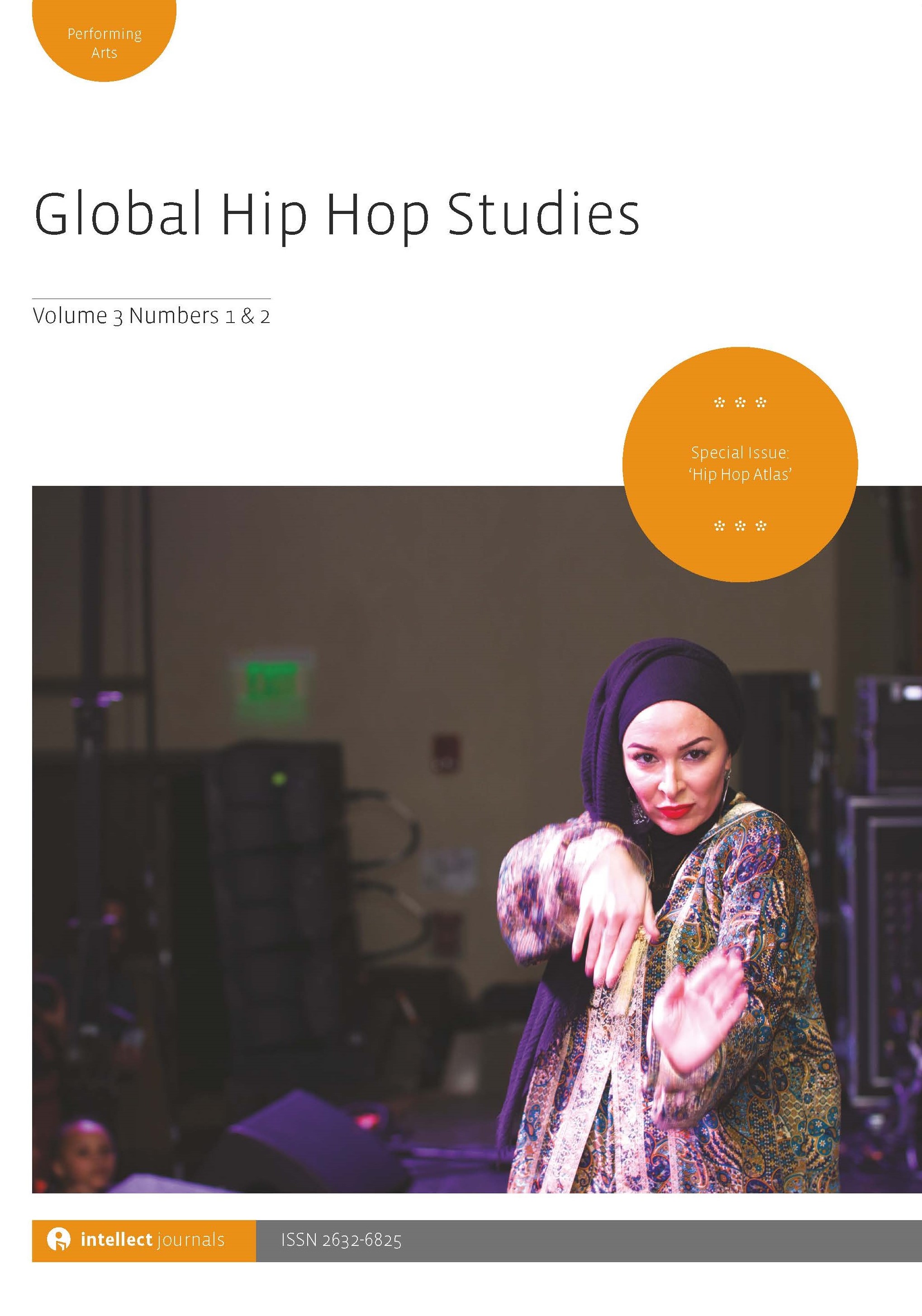-
oa South Africa (Mzansi)
- Source: Global Hip Hop Studies, Volume 3, Issue 1-2: Hip Hop Atlas, Dec 2022, p. 107 - 113
-
- 06 May 2022
- 25 May 2023
- 20 Dec 2023
Abstract
This article offers a snapshot of South African hip hop by focusing largely on the uptake of ‘conscious’ hip hop in the 1980s and 1990s. It argues that especially Cape Town activists made meaningful contributions to advancing Black multilingual expression and, thereby, validating negated Black identities as the country was beginning to make the transition from apartheid to a democratic, post-apartheid South Africa. Ultimately, it questions whether the binary opposition between ‘conscious’ and commercial hip hop or Cape Town vs. Joburg hip hop is helpful in understanding the nuances of South African hip hop by pointing to examples that complicate such binaries.
© 2023 (2022) The Author(s). Published by Intellect Ltd.
This article is Open Access under the terms of the Creative Commons Attribution-NonCommercial-NoDerivatives 4.0 International licence (CC BY-NC-ND), which allows users to copy, distribute and transmit the article as long as the author is attributed, the article is not used for commercial purposes, and the work is not modified or adapted in any way. To view a copy of the licence, visit https://creativecommons.org/licenses/by-nc-nd/4.0/



